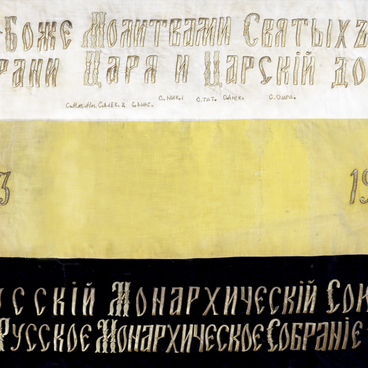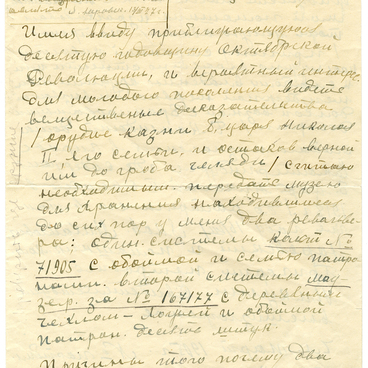On December 15, 2017, the Federation Council of the Federal Assembly of the Russian Federation issued the resolution to hold presidential elections on March 18, 2018.
In total, the Central Election Commission of Russia received documents from 36 candidates to be nominated, however only 8 of them provided documentation necessary for registration. Representatives of seven political parties were candidate for the position of the President of Russia, namely, Sergey Baburin, a representative of the Russian All-People’s Union, Pavel Grudinin, a representative of the Communist Party of the Russian Federation, Vladimir Zhirinovsky, the leader of the Liberal Democratic Party of Russia, Kseniya Sobchak, the leader of the Civil Initiative, Maxim Suraykin, a representative of the party Communists of Russia, Boris Titov, a representative of the Party of Growth, Grigory Yavlinsky, a representative of the Russian United Democratic Party “Yabloko”, and one self-nominated candidate, the acting president of Russia Vladimir Putin.
In order to hold elections, 97,000 voting stations were organized in Russia and 401 abroad. In 2018, a new voting procedure was initiated. Citizens were not obliged to vote at the voting station related to their place of registration. They could vote at any station and they even did not have to take a usual absentee voter certificate. Another innovation of elections in 2018 was a shortened list of requirements to documentation of candidates and an easier access to polls for observers.
On March 18, the day of elections about 356,000 observers and almost 15,000 journalists were presented at voting stations. 1,513 international observers came to Russia from 115 countries as well. Representatives of 14 international organizations, including the Commonwealth of Independent States, the Organization for Security and Co-operation in Europe, the Shanghai Cooperation Organization, the Parliamentary Assembly of the Collective Security Treaty Organization, the Parliamentary Assembly of the Union of Belarus and Russia, the Parliamentary Assembly of the Black Sea Economic Cooperation, and the Interparliamentary Assembly on Orthodoxy, were invited by Russia to observe the elections.
According to official statistics, 73,629,581 persons, i.e. more than 67% of total number of voters came to voting stations.
Vladimir Putin won the first ballot with 76,69% of the votes. It means that 56,430,712 citizens voted for the acting president in 2018. On May 7, 2018, Vladimir Putin assumed the position of President for the fourth time.
In total, the Central Election Commission of Russia received documents from 36 candidates to be nominated, however only 8 of them provided documentation necessary for registration. Representatives of seven political parties were candidate for the position of the President of Russia, namely, Sergey Baburin, a representative of the Russian All-People’s Union, Pavel Grudinin, a representative of the Communist Party of the Russian Federation, Vladimir Zhirinovsky, the leader of the Liberal Democratic Party of Russia, Kseniya Sobchak, the leader of the Civil Initiative, Maxim Suraykin, a representative of the party Communists of Russia, Boris Titov, a representative of the Party of Growth, Grigory Yavlinsky, a representative of the Russian United Democratic Party “Yabloko”, and one self-nominated candidate, the acting president of Russia Vladimir Putin.
In order to hold elections, 97,000 voting stations were organized in Russia and 401 abroad. In 2018, a new voting procedure was initiated. Citizens were not obliged to vote at the voting station related to their place of registration. They could vote at any station and they even did not have to take a usual absentee voter certificate. Another innovation of elections in 2018 was a shortened list of requirements to documentation of candidates and an easier access to polls for observers.
On March 18, the day of elections about 356,000 observers and almost 15,000 journalists were presented at voting stations. 1,513 international observers came to Russia from 115 countries as well. Representatives of 14 international organizations, including the Commonwealth of Independent States, the Organization for Security and Co-operation in Europe, the Shanghai Cooperation Organization, the Parliamentary Assembly of the Collective Security Treaty Organization, the Parliamentary Assembly of the Union of Belarus and Russia, the Parliamentary Assembly of the Black Sea Economic Cooperation, and the Interparliamentary Assembly on Orthodoxy, were invited by Russia to observe the elections.
According to official statistics, 73,629,581 persons, i.e. more than 67% of total number of voters came to voting stations.
Vladimir Putin won the first ballot with 76,69% of the votes. It means that 56,430,712 citizens voted for the acting president in 2018. On May 7, 2018, Vladimir Putin assumed the position of President for the fourth time.

